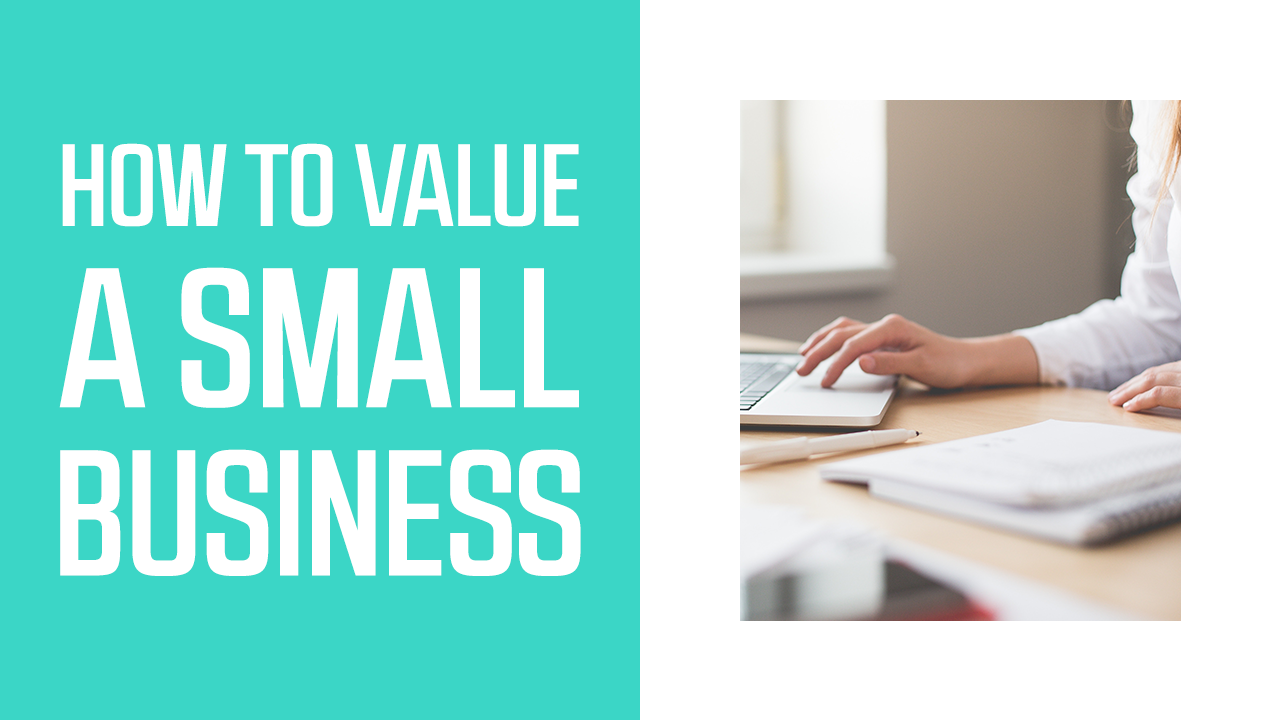I’m going to be sharing with you exactly how to value your company before you sell it and trust me, number five is gonna surprise you!
1. Value the last 3 years of income outside of your work
Look at the last three years of net income outside of you. I work with a lot of counselors, therapists, chiropractors, and massage therapists. They say they’re bringing in multi six figures but the reality is that oftentimes it’s based on the income of the person that owns it. Ideally, when you sell a business you’re not in the business anymore. So if you leave, that income leaves too, so you want to make sure that you’re looking at the net income outside of your own time.
If you have five clinicians that are each charging $100 per session and they’re doing all that work, and working 48 weeks a year, we’re going to then base it on that income: 5 clinicians x $100 per session they’re doing 15 sessions a week for 48 weeks a year = $360 000 dollars. If throughout the year you have $100 000 in expenses, that means that your net for this year is $260 000. You now want to look at the previous three years.
2. Value tangible assets (physical items like furniture, etc.)
These are things like computers that would be bought with the business: artwork, furniture, etc. You want to look at the replacement value of these even if they are a couple of years old. It’s going to take a lot to replace all of those and so you should be able to say that you bought a couch for $800 but now you think it’s worth $600. When you finally get to that point where you’re working with the person that’s buying your business you can choose to either let them buy all of those things and then they’re responsible for moving or selling or you’re going to have an a la carte menu. It’s nice to have a few areas that you can wiggle once you finally get to selling the business.
3. Value digital assets (website, social media, email list, etc.)
These would be things like your website, your social media and your email list. How much did it cost to get your website to the point that it’s at right now in regards to how it’s ranking, what keywords it’s doing well for and all of the backlinks from other businesses? You can use lots of tools that are out there to figure out how many backlinks you have for your website. Maybe a typical website build for you would cost $5,000 but then you also want to look at what the cost would be to rank that high and to hire an SEO expert. Maybe your website’s actually worth $10 000 or $15,000. That’s a digital asset that most people don’t look at when they’re looking at the end goal of selling their business.
You should also look at social media, if you have a number of followers and you can track all of these things going into your client base, you’re better able to say this is valuable. As a marketing asset, it would take you thousands of dollars to get to the point that we’re at right now. That then becomes another negotiating item. You also have ownership of things like your logo, branding, anything that you’ve hired someone to build out for you. Assuming you own the rights to all of that, you can sell that as part of the package as well.
4. Value non-tangible assets (reputation)
How long would it take to start from scratch to build this level of reputation and the connections that you have? How long will it take to build the introductions that you’re going to have to do once the new person takes over your business? A reputation manager might cost $2-3000 to help start a new business. If you’re looking at being connected locally, that’s again something that most people overlook.
5. Add 20% for negotiating
Add 20% to everything! This then gives you a substantial amount of negotiating power when you finally get to the table. Now of course, with your actual net income that’s not something that you can add 20 percent to, but you want to have the overall package be about 20% higher than what the actual value is. This then gives you a lot of wiggle room when you finally get to the negotiating table with the potential buyer.
We have tons of resources over at practice of here. If you’re looking for some extra help around selling a practice, scaling it or going after big ideas like podcasting or a course, I’d love for you to apply for some consulting here, we’ll jump on a call to see if you’re a good fit with me or with my team.
Watch the other videos in this series:
Joseph R. Sanok, MA, LLP, LPC, NCC
 Joe Sanok is an ambitious results expert. He is a private practice business consultant and counselor that helps small businesses and counselors in private practice to increase revenue and have more fun! He helps owners with website design, vision, growth, and using their time to create income through being a private practice consultant. Joe was frustrated with his lack of business and marketing skills when he left graduate school. He loved helping people through counseling but felt that often people couldn’t find him. Over the past few years, he has grown his skills, income, and ability to lead others, while still maintaining an active private practice in Traverse City, MI. To link to Joe’s Google+
Joe Sanok is an ambitious results expert. He is a private practice business consultant and counselor that helps small businesses and counselors in private practice to increase revenue and have more fun! He helps owners with website design, vision, growth, and using their time to create income through being a private practice consultant. Joe was frustrated with his lack of business and marketing skills when he left graduate school. He loved helping people through counseling but felt that often people couldn’t find him. Over the past few years, he has grown his skills, income, and ability to lead others, while still maintaining an active private practice in Traverse City, MI. To link to Joe’s Google+

